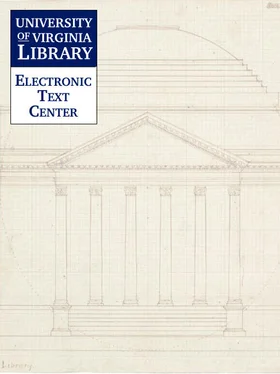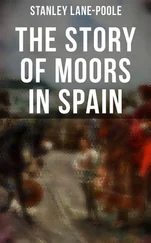Hendrik Loon - The Story of Mankind
Здесь есть возможность читать онлайн «Hendrik Loon - The Story of Mankind» весь текст электронной книги совершенно бесплатно (целиком полную версию без сокращений). В некоторых случаях можно слушать аудио, скачать через торрент в формате fb2 и присутствует краткое содержание. Год выпуска: 2000, Издательство: Electronic Text Center. University of Virginia Library., Жанр: Старинная литература, на английском языке. Описание произведения, (предисловие) а так же отзывы посетителей доступны на портале библиотеки ЛибКат.
- Название:The Story of Mankind
- Автор:
- Издательство:Electronic Text Center. University of Virginia Library.
- Жанр:
- Год:2000
- ISBN:нет данных
- Рейтинг книги:3 / 5. Голосов: 1
-
Избранное:Добавить в избранное
- Отзывы:
-
Ваша оценка:
- 60
- 1
- 2
- 3
- 4
- 5
The Story of Mankind: краткое содержание, описание и аннотация
Предлагаем к чтению аннотацию, описание, краткое содержание или предисловие (зависит от того, что написал сам автор книги «The Story of Mankind»). Если вы не нашли необходимую информацию о книге — напишите в комментариях, мы постараемся отыскать её.
The Story of Mankind — читать онлайн бесплатно полную книгу (весь текст) целиком
Ниже представлен текст книги, разбитый по страницам. Система сохранения места последней прочитанной страницы, позволяет с удобством читать онлайн бесплатно книгу «The Story of Mankind», без необходимости каждый раз заново искать на чём Вы остановились. Поставьте закладку, и сможете в любой момент перейти на страницу, на которой закончили чтение.
Интервал:
Закладка:
Then for the first time the world possessed an easy and convenient instrument which could be mastered in a couple of years and did not need the eternal tuning of harps and fiddles and was much pleasanter to the ears than the mediæval tubas, clarinets, trombones and oboes. Just as the phonograph has given millions of modern people their first love of music so did the early ``pianoforte'' carry the knowledge of music into much wider circles. Music became part of the education of every well-bred man and woman. Princes and rich merchants maintained private orchestras. The musician ceased to be a wandering ``jongleur'' and became a highly valued member of the community. Music was added to the dramatic performances of the theatre and out of this practice, grew our modern Opera. Originally only a few very rich princes could afford the expenses of an ``opera troupe.'' But as the taste for this sort of entertainment grew, many cities built their own theatres where Italian and afterwards German operas were given to the unlimited joy of the whole community with the exception of a few sects of very strict Christians who still regarded music with deep suspicion as something which was too lovely to be entirely good for the soul.
By the middle of the eighteenth century the musical life of Europe was in full swing. Then there came forward a man who was greater than all others, a simple organist of the Thomas Church of Leipzig, by the name of Johann Sebastian Bach. In his compositions for every known instrument, from comic songs and popular dances to the most stately of sacred hymns and oratorios, he laid the foundation for all our modern music. When he died in the year 1750 he was succeeded by Mozart, who created musical fabrics of sheer loveliness which remind us of lace that has been woven out of harmony and rhythm. Then came Ludwig van Beethoven, the most tragic of men, who gave us our modern orchestra, yet heard none of his greatest compositions because he was deaf, as the result of a cold contracted during his years of poverty.
Beethoven lived through the period of the great French Revolution. Full of hope for a new and glorious day, he had dedicated one of his symphonies to Napoleon. But he lived to regret the hour. When he died in the year 1827, Napoleon was gone and the French Revolution was gone, but the steam engine had come and was filling the world with a sound that had nothing in common with the dreams of the Third Symphony.
Indeed, the new order of steam and iron and coal and large factories had little use for art, for painting and sculpture and poetry and music. The old protectors of the arts, the Church and the princes and the merchants of the Middle Ages and the seventeenth and eighteenth centuries no longer existed. The leaders of the new industrial world were too busy and had too little education to bother about etchings and sonatas and bits of carved ivory, not to speak of the men who created those things, and who were of no practical use to the community in which they lived. And the workmen in the factories listened to the drone of their engines until they too had lost all taste for the melody of the flute or fiddle of their peasant ancestry. The arts became the step-children of the new industrial era. Art and Life became entirely separated. Whatever paintings had been left, were dying a slow death in the museums. And music became a monopoly of a few ``virtuosi'' who took the music away from the home and carried it to the concert-hall.
But steadily, although slowly, the arts are coming back into their own. People begin to understand that Rembrandt and Beethoven and Rodin are the true prophets and leaders of their race and that a world without art and happiness resembles a nursery without laughter.
COLONIAL EXPANSION AND WAR
A CHAPTER WHICH OUGHT TO GIVE YOU A GREAT DEAL OF POLITICAL INFORMATION ABOUT THE LAST FIFTY YEARS, BUT WHICH REALLY CONTAINS SEVERAL EXPLANATIONS AND A FEW APOLOGIES
IF I had known how difficult it was to write a History of the World, I should never have undertaken the task. Of course, any one possessed of enough industry to lose himself for half a dozen years in the musty stacks of a library, can compile a ponderous tome which gives an account of the events in every land during every century. But that was not the purpose of the present book. The publishers wanted to print a history that should have rhythm--a story which galloped rather than walked. And now that I have almost finished I discover that certain chapters gallop, that others wade slowly through the dreary sands of long forgotten ages--that a few parts do not make any progress at all, while still others indulge in a veritable jazz of action and romance. I did not like this and I suggested that we destroy the whole manuscript and begin once more from the beginning. This, however, the publishers would not allow.
As the next best solution of my difficulties, I took the type-written pages to a number of charitable friends and asked them to read what I had said, and give me the benefit of their advice. The experience was rather disheartening. Each and every man had his own prejudices and his own hobbies and preferences. They all wanted to know why, where and how I dared to omit their pet nation, their pet statesman, or even their most beloved criminal. With some of them, Napoleon and Jenghiz Khan were candidates for high honours. I explained that I had tried very hard to be fair to Napoleon, but that in my estimation he was greatly inferior to such men as George Washington, Gustavus Wasa, Augustus, Hammurabi or Lincoln, and a score of others all of whom were obliged to content themselves with a few paragraphs, from sheer lack of space. As for Jenghiz Khan, I only recognise his superior ability in the field of wholesale murder and I did not intend to give him any more publicity than I could help.
``This is very well as far as it goes,'' said the next critic, ``but how about the Puritans? We are celebrating the tercentenary of their arrival at Plymouth. They ought to have more space.'' My answer was that if I were writing a history of America, the Puritans would get fully one half of the first twelve chapters; that however this was a history of mankind and that the event on Plymouth rock was not a matter of far-reaching international importance until many centuries later; that the United States had been founded by thirteen colonies and not by a single one; that the most prominent leaders of the first twenty years of our history had been from Virginia, from Pennsylvania, and from the island of Nevis, rather than from Massachusetts; and that therefore the Puritans ought to content themselves with a page of print and a special map.
Next came the prehistoric specialist. Why in the name of the great Tyrannosaur had I not devoted more space to the wonderful race of Cro-Magnon men, who had developed such a high stage of civilisation 10,000 years ago?
Indeed, and why not? The reason is simple. I do not take as much stock in the perfection of these early races as some of our most noted anthropologists seem to do. Rousseau and the philosophers of the eighteenth century created the ``noble savage'' who was supposed to have dwelt in a state of perfect happiness during the beginning of time. Our modern scientists have discarded the ``noble savage,'' so dearly beloved by our grandfathers, and they have replaced him by the ``splendid savage'' of the French Valleys who 35,000 years ago made an end to the universal rule of the low-browed and low-living brutes of the Neanderthal and other Germanic neighbourhoods. They have shown us the elephants the Cro-Magnon painted and the statues he carved and they have surrounded him with much glory.
I do not mean to say that they are wrong. But I hold that we know by far too little of this entire period to re-construct that early west-European society with any degree (however humble) of accuracy. And I would rather not state certain things than run the risk of stating certain things that were not so.
Читать дальшеИнтервал:
Закладка:
Похожие книги на «The Story of Mankind»
Представляем Вашему вниманию похожие книги на «The Story of Mankind» списком для выбора. Мы отобрали схожую по названию и смыслу литературу в надежде предоставить читателям больше вариантов отыскать новые, интересные, ещё непрочитанные произведения.
Обсуждение, отзывы о книге «The Story of Mankind» и просто собственные мнения читателей. Оставьте ваши комментарии, напишите, что Вы думаете о произведении, его смысле или главных героях. Укажите что конкретно понравилось, а что нет, и почему Вы так считаете.












